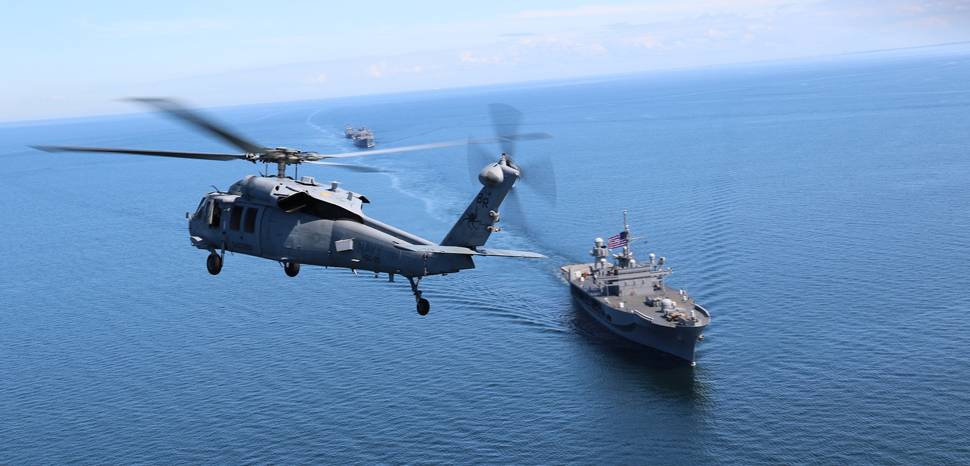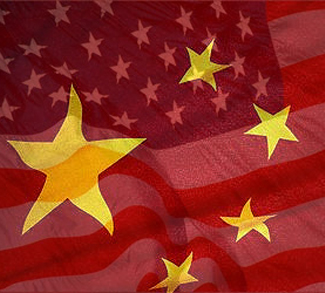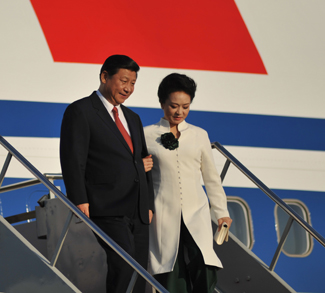Over two decades ago, American political scientist John J. Mearsheimer predicted a clash between the United States and the People’s Republic of China in The Tragedy of Great Power Politics. In a recent interview, Mearsheimer reiterated his previous position that “there would never be a peaceful emerging of China,” saying the idea that China is going to become a regional hegemon is unacceptable to the United States. Mearsheimer and other realists have dismissed the COVID-19 pandemic as well as ideological differences as the cause of the US-China rift. Instead, the confrontation is seen as a “balance of power” issue and an inevitable Cold War due to China’s hegemonic aspirations, which the coronavirus fallout has only accelerated. China’s military competition with the U.S. and its incursions in the South China Sea, unprecedented and aggressive intelligence collection, its geopolitical expansions through the Belt and Road Initiative, and unfair trade and intellectual property practices have compelled the U.S. to consider the prospect of confrontation.
The post-World War II global order, which was set up to defy the Soviet Union, has changed and the era of American neo-isolationism begun. Fortunately, the United States has the necessary tools to cross over to this era, mainly its geography, maritime supremacy, and industrial capacity. However, other nations are vulnerable to American isolationism, particularly those which depend on the U.S. for maritime security and technological advancement. With only days left until the 2020 presidential election, both parties in the U.S. are headed into a new approach and they both share a deep concern about dependence on China’s manufacturing goods. This means that regardless of the outcome of the election, there will be a fundamental shift in U.S. foreign policy toward China, and the global pandemic only sped up the inevitability of this shift.
India, Japan, and Australia have enormous interest in participating in a dialogue with the U.S. to counter China’s assertiveness in the Indo-Pacific region. This was apparent in the Quadrilateral Security Dialogue or “Quad” with the United States. While the U.S. is the only country to recognize China as an “adversary” in its National Security Strategy, the resurrection of the Quad confirms the other participants’ changing stances. Even Russia, eager to raise its geopolitical profile in South Asia and to lead Eurasian affairs, senses that it should prevent China from taking over the Eurasia region, as it balances a tenuous relationship between India and China.
In Europe, although not a united front, distrust toward China is also growing. Despite the need to expand trade with China, the latest virtual EU-China summit between Xi Jinping and EU officials failed to produce a desirable outcome, including an expected investment agreement. This failure is due to several factors, including Beijing’s handling of the pandemic, its economic practices, and human rights issues related to Hong Kong. It appears that Europe’s demands on China are hardening.
The United States and Europe disagree on several strategic geopolitical issues, but they can work to resolve them. The United States’ insistence on ending the Nord Stream is based on concerns that Europe’s reliance on Russia’s imported gas will move Europe further into Russia’s orbit; this is while many European countries are reluctant to commit to defense spending and strengthening the NATO alliance. These are the areas that must be improved through vigorous diplomacy.
Recently, the United Nations Security Council (UNSC) rejected a U.S. resolution to extend a global arms embargo on Iran to curb Iran’s access to advanced weapons systems through the snapback process under UNSCR 2231. Iran is an important piece of the puzzle in dealing with China. The U.N.’s opposition to U.S. efforts highlights the failure of Washington’s coalition-building and diplomatic capacity to curb Iran’s contentious actions. It also underscores the absence of a viable Iran strategy to remedy the flaws of the counter-proliferation agreement known as the JCPOA. A unilateral U.S. withdrawal from the agreement without a workable replacement led to the diplomatic failure at the UNSC. The Trump administration made it clear that it did not think that the JCPOA fulfilled its counter-proliferation expectations and felt the need to renegotiate considering Iran’s post-deal behavior. This may be the case for any upcoming administration, considering regional uncertainty due to Iran’s behavior and the shortcomings of the agreement.
The fallout at UNSC was unfortunate, but it may be a just “bump in the road” in the trans-Atlantic alliance, as it signifies the importance of traditional relationships which, if undermined, can jeopardize global security. Meanwhile, the reactions of Germany, France, and the UK to Iran’s brutal execution of Navid Afkari and the hostage taking of dual-nationals appeared as a change of attitude toward the Iranian regime. This is a positive change in Europe’s stance that will provide an opportunity for cooperation between the U.S. and Europe to stand against the Islamic Republic’s human rights violations. Other areas of collaboration include maritime security, cyber security, and more vigorous intelligence-sharing.
Iran’s Supreme Leader has openly expressed enthusiasm for the “Turning East rather than West” political doctrine. Understanding this mindset, it is not strange to see why Iran may commit to a major 25-year economic, energy, and security agreement with China. If finalized, the agreement would extend China’s naval and intelligence access to the Persian Gulf, bring China closer to NATO and U.S. forces in the region, and could replace India as the primary developer of the strategic Chabahar Port. China is already building an extended area of influence through the China–Pakistan Economic Corridor which is a pillar of the Belt and Road Initiative. This ambitious project will allow China direct access to Gwadar Port on the Arabian Sea. Additionally, the completion of the Gwadar–Kashgar pipeline project will reduce China’s dependence on the Strait of Malacca. Such access would ensure that the vital flow of energy to China will not be disrupted and is intended to challenge the U.S. dominance in the region.
China’s move to dominate the Middle East and Eurasia is only one portion of the shifting geopolitics of the world. Considering Russia’s geopolitical position and its need to secure energy markets, Europe does not see a serious conflict with Russia on the horizon. However, Russia’s encroachments in Eastern Europe make the NATO alliance a tie that Europe cannot see weakened. As seen recently, Washington agreed to participate in the “Three Seas Initiative” to establish an economic, infrastructure, and digital belt around Central and Eastern Europe, create a “north-south” energy and infrastructure corridor in the region, and ultimately reduce the region’s dependence on Russian energy imports.
Despite the PRC’s numerous problems, including demography, geography, export-led economy, and lack of resources, to deal with the challenges presented by China, U.S. leadership must be restored, and a resilient trans-Atlantic alliance be built. Just as China’s intention to dominate the Himalayas will be countered, India’s relationship with Iran and the development of Chabahar Port is crucial in reaching peace and stability in Afghanistan. More importantly, the next U.S. administration must have a clearly defined policy toward Iran and work vigorously with its allies to achieve set goals. Such a firm alliance will be critical to ensure global stability. Without building a viable international coalition, it will not be possible for Western democracies to get the Chinese government to agree to any concrete changes and adhere to rules-based international order, just as it will not be possible to confront the complex global security challenges that lie in wait in the future.
The views expressed in this article are those of the authors alone and do not necessarily reflect those of Geopoliticalmonitor.com or any institutions with which the authors are associated.




